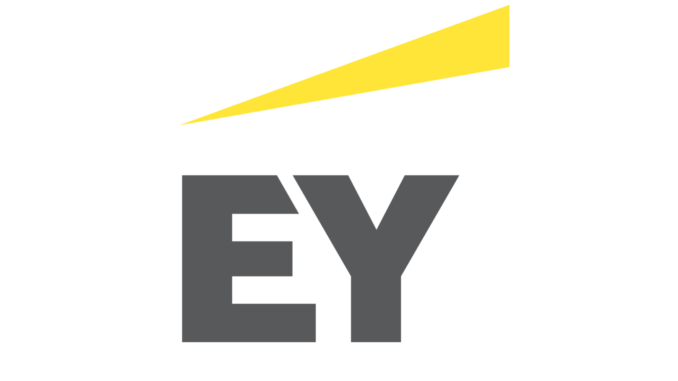
Doing more with less: how to reimagine the legal function for the digital age
By Matthew Kellett, Partner, EY – UK Law Leader, Financial Services
If you’re in any doubt that legal functions are facing a need for radical change, then consider these three statistics from our recent study of 1,000 in-house legal departments worldwide.
First, 87% of respondents say their legal function has seen either a large or moderate rise in demand over the past five years. Second, against the background of this rising workload, 82% of organisations plan to reduce the costs of their legal function over the next two years. And third, over a quarter – 27% – of in-house legal professionals’ time is spent on routine, low-value tasks. That’s more than one hour in four.
Bridging the innovation gap…
The message is clear: in-house legal teams are being asked to do more with less – yet their ability to respond to increasing demands is being constrained by inefficient, labour-intensive processes. Why? Partly because they’ve often been starved of the innovation happening elsewhere in the business.
In our survey, almost two-thirds of General Counsel’s Offices (GCOs) say the legal function has fallen behind other functions on innovation, while a similar proportion agree that it has yet to benefit from innovation in the way other functions have.
At a time when businesses are facing the twin challenges of rising costs and increasing regulatory scrutiny, this puts legal functions at a vital inflection point. And as if this weren’t enough, General Counsel are under growing pressure to demonstrate meaningful value to the business and keep pace with wider transformation across the organisation.
…by embracing the power of digital
Faced with these conflicting imperatives, more and more legal functions are recognising that the only viable response is getting more out of their people and processes by modernising their operating models through digital transformation.
There are many examples of what can be achieved. For example, using AI and RPA (robotic process automation) to automate repetitive tasks, freeing up in-house lawyers to apply their skills more effectively and become a more valued partner to the business. Or using virtual analytics to monitor risk, manage compliance and protect the firm’s reputation – thereby helping to empower the General Counsel to advise the company on its wider strategic goals.
If this sounds transformational, that’s because it is. Just as industries are converging, so too are corporate functions, challenging long-held perceptions of what they can do. As part of this, more and more corporates are beginning to reimagine their legal functions for the digital age, looking to make them more efficient, more effective and more central to their business.
Legal departments are up for the challenge…
Conversations with clients confirm that legal functions share these aspirations. They’re increasingly telling us that they want to operate more efficiently and transparently – and in a way that enables them to glean greater insight from the data, analytics and intelligence they collect.
At the same time, General Counsel want to relieve their in-house teams of high-volume, but relatively low-value, repetitive tasks. Automation is key to doing this. But the current, relatively low level of digital innovation and transformation means they’re often wondering where to start.
…and are seeking external expertise to help kick-start their operational transformation.
According to our survey, 74% of companies are already outsourcing to alternative legal services providers (ALSPs) or would consider doing so, and the proportion of firms considering using legal process outsourcers is also on the rise. The shift towards outsourcing is being accelerated by talent shortages, with 59% of General Counsel reporting challenges in attracting and retaining legal talent.
The result is a rapid rise in demand for Legal Managed Services (LMS) – broadly defined as technology-enabled support that includes automation for high-volume repetitive or event-driven legal work. LMS is the fastest-growing sector in the global legal market, expected to reach $80bn+ in value by 2020.
Legal departments can use LMS to help with everything from contract lifecycle management to discovery to regulatory mapping. In our survey, 75% of General Counsel say the two areas of the legal function they’re most likely to consider outsourcing are contract management and legal entity management.
Putting digital at the heart of the legal function
As a leading LMS provider, EY is already helping clients across many sectors optimize and transform their legal function – enabling it to catch up with the organisation’s broader business transformation by harnessing powerful new technologies.
For example, we help clients adopt and leverage technologies which can automate legal approval within a function’s end-to-end business processes. By taking over routine labour-intensive tasks, these technologies increase efficiency and reduce costs while also freeing up legal teams for higher-value activities.
Another valuable technology is data analytics, which enables legal departments to get more out of their data, equipping them with the insights needed to guide the business with greater certainty and measure progress around transformation initiatives. Together, these advances address the key aspects of most corporates’ current agendas for their legal functions, more for less, and help ensure a closer partnership with the business.
Broadening horizons
But the opportunities don’t end there. New technologies – combined with the forensic and integrity services on offer from a top LMS provider like EY – can also help in-house legal teams identify and manage risks more effectively. This is something that’s increasingly important; protecting their company’s reputation and assets.
More generally, using LMS – whether to deliver end-to-end automation, reduce costs, provide continuity and scale, mitigate risks, or achieve all these goals – empowers a legal function to look beyond its traditional remit as it transforms its operating model for the digital age. Crucially, this includes integrating and working more closely with the rest of the organization to understand how to deliver greater value to the wider business.
By using technology to help in reimagining the legal function, General Counsel can meet the challenge of doing more with less. Moreover, they can redefine the purpose and the value of the in-house team – and Legal Managed Services will play an important role in helping them achieve that goal.

[ Artificial Lawyer is proud to bring you this sponsored thought leadership article by EY. ]